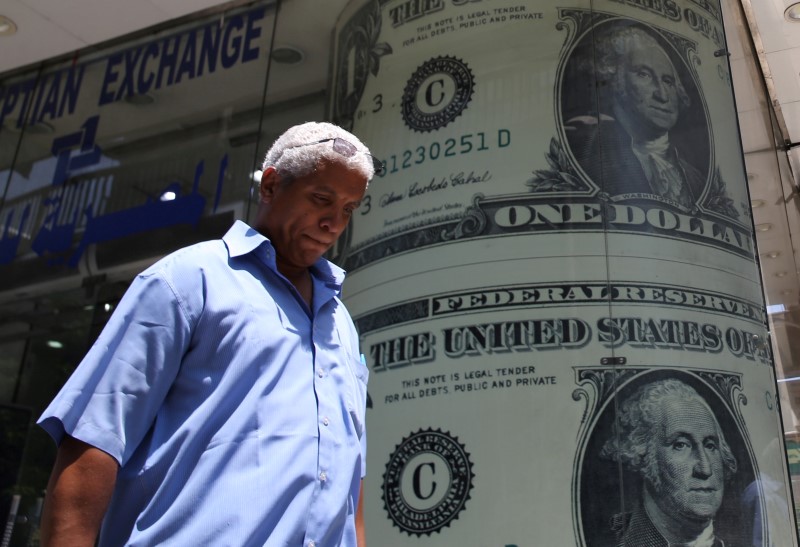Investing.com - The dollar was on the back foot against a basket of the other major currencies on Thursday after minutes from the Federal Reserve’s latest meeting raised doubts about whether the central bank will hike interest rates again this year.
The U.S. dollar index, which measures the greenback’s strength against a trade- weighted basket of six major currencies, was at 93.46 by 03.39 a.m. ET (07.39 a.m. GMT), off Wednesday's three-week high of 94.05.
Fed officials were split over the timing of future interest rate increases amid concerns over a recent string of sluggish inflation readings, the minutes of the central bank's July meeting showed.
Expectations that rates will rise more gradually tend to weigh on the dollar, as they make the currency less attractive to yield-seeking investors.
Concerns over U.S. President Donald Trump's ability to implement his economic policies after he disbanded two high-profile business advisory councils also fed into dollar weakness.
The dollar was lower against the yen, with USD/JPY slipping 0.16% to 110.00, down from Wednesday’s high of 110.84.
The euro was a touch lower, with EUR/USD dipping 0.09% to 1.1755, well above the previous session’s three-week low of 1.1680.
The euro had weakened following reports that European Central Bank President Mario Draghi will not deliver any fresh monetary policy message in his speech at the Fed’s Jackson Hole conference later this month.
The euro was trading near 10-month highs against sterling with EUR/GBP at 0.9122.
The euro has risen against sterling amid expectations that Brexit will be more damaging to the UK economy than the euro zone.
Sterling was little changed against the dollar, with GBP/USD at 1.2891.
Meanwhile, the Australian dollar was higher, with AUD/USD rising 0.4% to 0.7957, having rebounded on Wednesday from a one-month low.
Data out earlier on Thursday showed that Australia's unemployment rate edged down to 5.6% in July from an upwardly revised 5.7% as the economy added 27,900 new jobs.
The data was seen as unlikely to alter the Reserve Bank of Australia's neutral policy stance.
